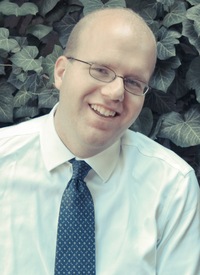Over the next few semesters, Coastal Resilience Center (CRC) investigators will be giving lectures to students in other parts of the country about their research as part of the integration of CRC research and education projects distributed among 21 universities and colleges in 12 U.S. states and Puerto Rico.

The CRC’s RETALK (short for Research Talks) program facilitates guest lectures from principal investigators (PI) of research projects and institutions hosting the Center’s education projects. Starting the program, PI Dr. Casey Dietrich of N.C. State University talked about his project, “Improving the Efficiency of Wave and Surge Models via Adaptive Mesh Resolution,” in May at Jackson State University (JSU). JSU is home to a CRC education project initiating a PhD program in coastal and computational engineering.
Dr. Dietrich’s presentation, “Hurricane Wave and Storm Surge Forecasting for the North Carolina Coast,” is available on his project page. In it, he related storm surge and flooding impacts in Louisiana in 2005 – primarily from hurricanes Katrina and Rita – to developments of the CRC’s SWAN+ADCIRC storm surge model. Several CRC projects are working on improving inputs and speed of the ADCIRC model.
“Our students at Jackson State were able to hear directly from one of the leading ADCIRC researchers in the United States,” said Tom Richardson, CRC Transition Director based at Jackson State University. “Dr. Dietrich has been working with ADCIRC since his undergraduate days at the University of Oklahoma, and he brings a wealth of knowledge and practical experience to his lectures.”
The RETALK program complements the SUMmeR EXchange (SUMREX) program, in which students at Minority-Serving Institutions intern at home universities of the Center’s research projects. The RETALK program has four objectives: To disseminate knowledge about CRC research partners and their work to students at CRC education partners; to foster collaboration and integration among the Center’s projects; to encourage interest among students in graduate studies at partner university programs; and to strengthen the CRC (especially the SUMREX program) by building relationships between PIs.
“The challenge of achieving true integration of projects of a Center of Excellence that is distributed among 21 universities and colleges in 12 states and a U.S. territory cannot be overstated,” said Robert Whalin, CRC Education and Workforce Development Director and a PI at Jackson State University. “I am extremely proud of the proactive efforts of all CRC research and education PIs in fostering this integration across the Center.”
Focusing on the broad theme of resiliency, PIs will lead future discussions on their research and on additional subjects that offer enrichment opportunities by exposing students to other scientific or technical areas. While the primary audience is students in programs supported by CRC projects, future talks could also be opened to the general public.
“In a half century of research and education leadership, I have never observed national integration occurring more seamlessly,” Dr. Whalin said. “By the end of this five-year Center of Excellence, we fully expect close professional relationships among CRC programs across the nation that will continue to flourish.”
